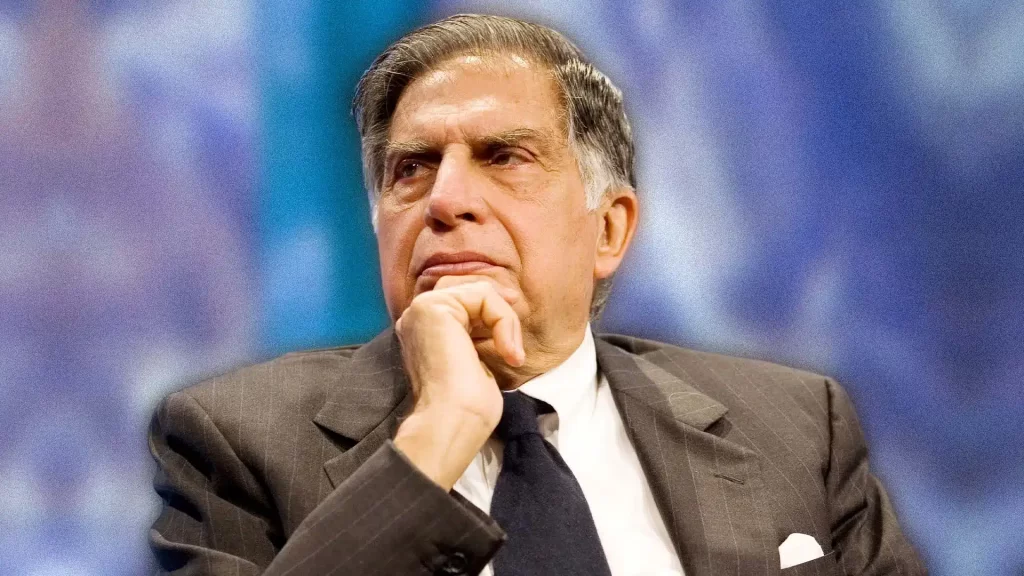The former chairman of Tata Group and Tata Sons, Ratan Naval Tata breathed his last on 9th October 2024. Few days before N Tata’s demise, on 7th July 2024, a Tata Steel employee died after falling from a crane while climbing it. Long before that, on 8th August 2014, another employee of Tata Steel died by falling into a hot liquid metal basket in the plant. On 28th June 2013, Tata Steel’s corporate communication head committed suicide after receiving several threats and harassment for criticizing certain practices within the company. Given the scenario, while some are extending their warm regards towards the Tata family on Ratan N Tata’s demise, others stir up the debate, whose death are we mourning? And as an extension, leads to an even bigger question, whose do we mourn?

Ratan Tata was globally acclaimed because of his philanthropy. While the net worth of Tata Sons is extravagant, the Tata Trusts hold approximately 66% of its equity. The trusts have been actively contributing since its foundation, ranking 5th among Asia’s20 largest philanthropic funders as per The Bridgespan Group report published in October 2024. Education, healthcare, the safety of animals, environmental and agricultural sustainability, and even the COVID-19 pandemic support- the group has left traces of humanitarianism across multiple areas through the trusts.
Let’s ignore the implications that billionaire philanthropy is an effective way of tax evasions, and more often than not, provided to private foundations in their own name which is essentially putting the money back in their pockets. The question still remains: do these charities even out the exploitation of laborers, risky working conditions, and in worst-case scenarios, their deaths?
Corporate hypocrisy has been a practice as we see with “Bezos Earth Fund” charity to combat climate change whereas their funder Amazon is one of the major contributors to global carbon emissions, Coca-Cola invests in the “World Without Waste” campaign being one of the largest plastic waste producers globally- mostly in response to reputation management. So when we had N Tata vocal about his stance against inequality, what exactly differentiated his intentions from the hoax of a capitalist?
Global capitalism unleashes a critical dimension to the economic system: the adoption of resourcefulness. That is, an entity can easily penetrate the market if it has access to the necessary resources. However, the distribution of resources is the biggest bummer to date. It requires you to be educated, trained, well-financed, and adaptive.
The class division of capitalism here plays its nasty role- the lower class people can hardly access the resources for their lack of education, adaptation capacity, and financial barrier. Hence although ideologically anyone can seize an opportunity in capitalism, it is always the upper or upper-middle-class population accessing them, the lower class falling victim to their status quo. That is to say that to earn money, you have to have money, or at least, a certain amount. The rest have to earn their meager amount of bread, by trading off their physical labor: labor that would require strength, pay less, ensure no safety, and assure no future.
The trap of capitalism is an open secret: those who cannot adapt can be exploited. While the gravest aim of a country’s economic system should be to protect its citizens, governments mostly focus on increasing their GDP to indicate what great welfare they’ve extended to the nation. However, the increase in GDP does not necessarily indicate the upgrade in the livelihood of the lower class.
Businesses like Tata Groups sneak into the scenario here, whose earnings are built upon the blood, sweat, and sacrifices of the proletariat. Driven by misleading indicators, and greed for competitive advantage, capitalist nations allow the entities to suck the blood of the helpless and grow in the name of prosperity. In a swiftly changing world that promotes technological advancement, worships intellectuality, and raises voices for human rights, how justifiable is that? And as for a business that fosters ethical capitalism and equality, and claims to preserve the rights of laborers, how does it justify its act?
Operating for more than 150 years now, the Tata Group is an essential pivot of India’s capital market. Scrutinized steps to retain its image, and yet the company has many times been accused of operational mismanagement, governance issues, unethical corporate practices, poor labor conditions, and so forth. However, the faults are often overlooked for the group’s historical development and walk through the country’s dramatic changes in political and economic trajectory.
The persistence has been made possible by dint of shrewd branding and philanthropy that proclaims to foster ethical capitalism. The pitfall, however, is that ethics and capitalism lie on the two opposing sides of the coin; hence when Tata Group boasts its “less profit margin” to “stop exploiting the laborers,” and yet has a competitive profit margin compared to the industry, it only highlights the unethical approach regarding ethics. Capitalism leaves little room for ethics to prevail and industries aiming to profit from it, ideologically, are exploitative; Tata Group is no different.
So when we accept capitalism, we accept primitive accumulation. When we celebrate the success of capitalism, we celebrate the system that eats up a part of it to feed the other. And when we lionize a capitalist, we idealize the exploitation of a thousand.
So while mourning someone is a personal choice, we should do that by asking ourselves if they deserve our grief. When we mourn for a billionaire, we should mourn a hundred times more for the lives that wealth was built upon.